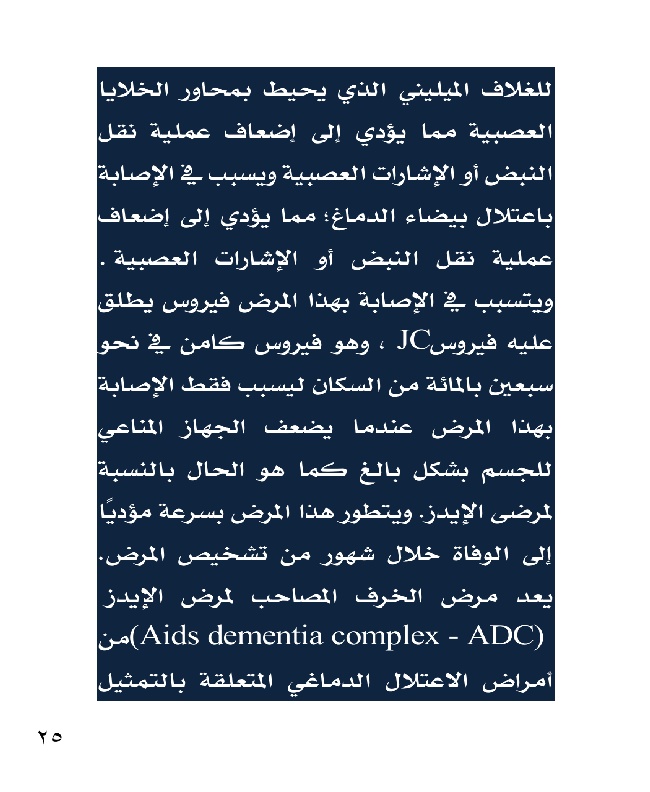الجهاز المناعي مُعجزَةِ الخالق
abu-71تشخيص الايدز
تشخيص الايدز
Tests and diagnosis
By Mayo Clinic Staff
HIV is most commonly diagnosed by testing your blood or saliva for antibodies to the virus. Unfortunately, it takes time for your body to develop these antibodies — usually up to 12 weeks.
A newer type of test that checks for HIV antigen, a protein produced by the virus immediately after infection, can quickly confirm a diagnosis soon after infection. An earlier diagnosis may prompt people to take extra precautions to prevent transmission of the virus to others.
Home test
A Food and Drug Administration-approved home test is available. To do the test, you swab fluid from your upper and lower gums. If the test is positive, you need to see your doctor to confirm the diagnosis and discuss your treatment options. If the test is negative, it needs to be repeated in three months to confirm the results.
Tests to tailor treatment
If you receive a diagnosis of HIV/AIDS, several types of tests can help your doctor determine what stage of the disease you have. These tests include:
CD4 count. CD4 cells are a type of white blood cell that's specifically targeted and destroyed by HIV. Even if you have no symptoms, HIV infection progresses to AIDS when your CD4 count dips below 200.
Viral load. This test measures the amount of virus in your blood. Studies have shown that people with higher viral loads generally fare more poorly than do those with a lower viral load.
Drug resistance. This blood test determines whether the strain of HIV you have will be resistant to certain anti-HIV medications.
Tests for complications
Your doctor might also order lab tests to check for other infections or complications, including:
Tuberculosis
Hepatitis
Toxoplasmosis
Sexually transmitted infections
Liver or kidney damage
Urinary tract infection


















































































































ليست هناك تعليقات:
إرسال تعليق